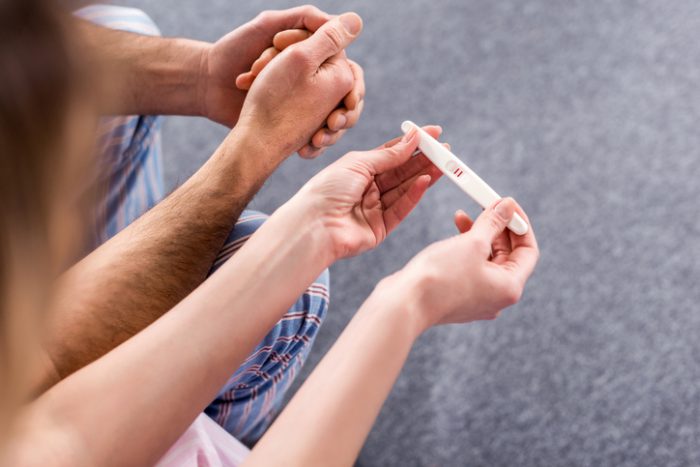
HPV is the most common STI. Since it usually doesn’t produce any symptoms, many people may have HPV without realizing it. Whether you’ve received an HPV diagnosis or not, you may be concerned about how the virus could affect your ability to become pregnant. This article will address your concerns about HPV and infertility.
Difficulty Getting Pregnant
Having HPV could potentially affect a woman’s ability to conceive. According to one study, HPV appears to reduce the ability of embryos to implant in the uterine wall. This may lead to an increased risk of miscarriage. However, it’s unknown exactly how closely the virus is linked to miscarriage and whether various strains of the virus affect fertility differently.
For example, a study of patients with miscarriages found HPV 16 and 18 (two of the most high-risk strains) in 7.4% of the embryos tested. Another study found that 60% of early miscarriages carried HPV E6/E7 sequences while only 20% of voluntarily terminated pregnancies carried the same sequences.
It’s very important to note that these studies were conducted with small sample sizes, so the statistical findings may not be accurate on a larger scale. In addition, some studies with larger sample sizes have found that HPV infection may not lead to a higher risk of miscarriage. While HPV infection may be a risk factor for reduced fertility, it is not known to what extent the virus impacts a woman’s ability to become pregnant and avoid pregnancy loss.
HPV and Male Fertility
Men can also deal with fertility issues as a result of this STI. HPV infections are known to result in lower semen quality. The virus can actually bind to the head of a sperm cell and reduce its ability to move freely.
There also appears to be a link between male fertility issues and HPV infection. According to one study, men with fertility problems were about three to four times more likely than other men to have HPV. It is not clear whether HPV causes infertility, but it does appear to have an effect on a man’s ability to impregnate a partner.
Keep in mind that many women with HPV have been able to get pregnant and give birth to healthy babies. If you’re concerned about whether an HPV infection could affect your fertility, make an appointment with your doctor.
Sources
- Genital HPV Infection – Fact Sheet: Centers for Disease Control and Prevention, 2017.
- Human Papillomavirus Infection, Infertility, and Assisted Reproductive Outcomes: National Institutes of Health, 2015.
- Human Papillomavirus Infection and Fertility Alteration: A Systematic Review: National Institutes of Health, 2015.
- Human Papillomavirus Prophylactic Vaccination improves reproductive outcome in infertile patients with HPV semen infection: a retrospective study: National Institutes of Health, 2018.









